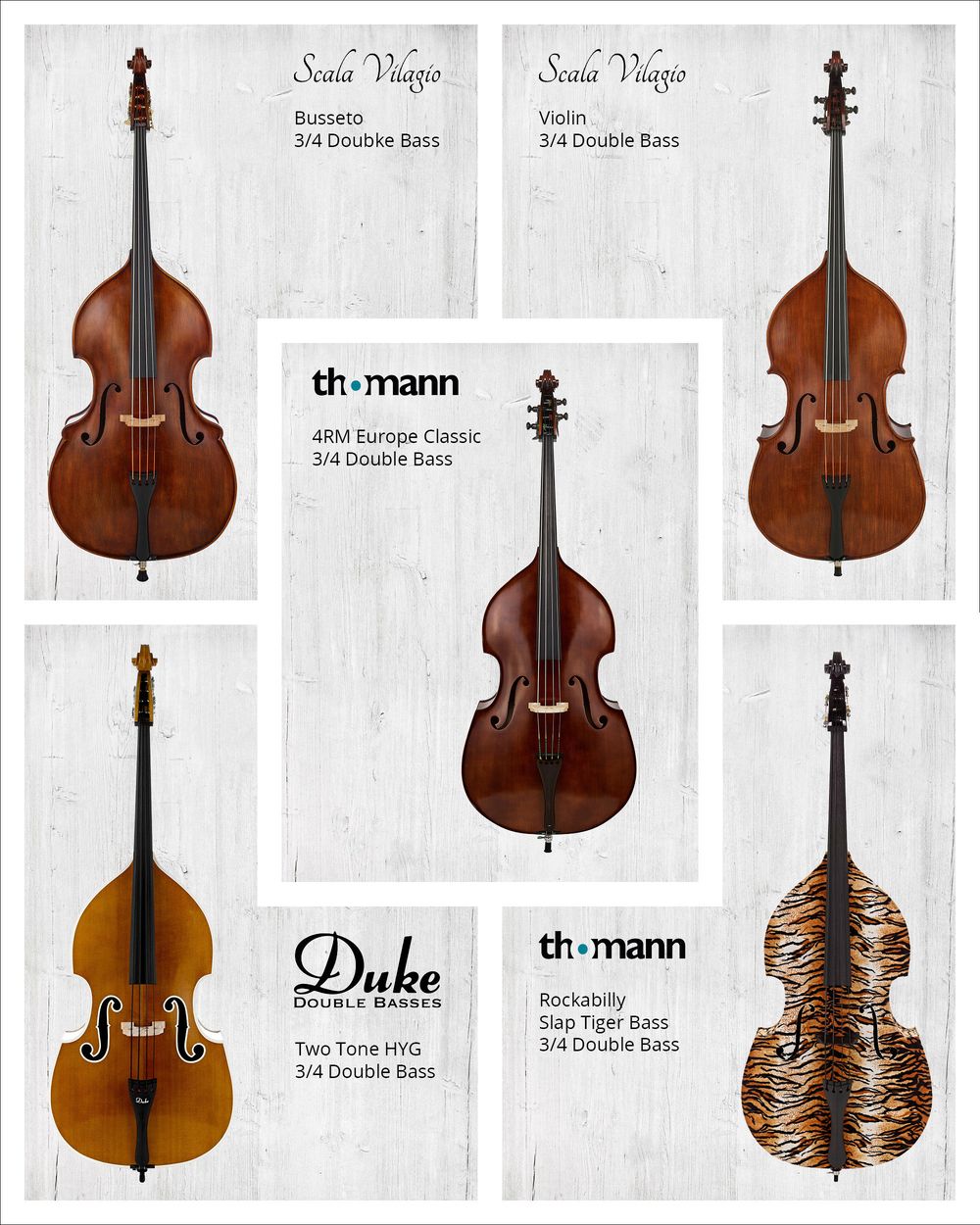2. History & Design
The double bass, as we know it today, has features of both the viola da gamba family and characteristics of the violin family. It has evolved from various ancestral lines of old bowed bass instruments and is the largest instrument in the string family.
From the violin family, it adopted the F-shaped sound holes (F-holes), the number of strings, the unfretted fingerboard, and the scroll at the end of the pegbox.
From the viola da gamba family, it inherits the sloping shoulders, often straight back, and the tuning of the strings in fourths.
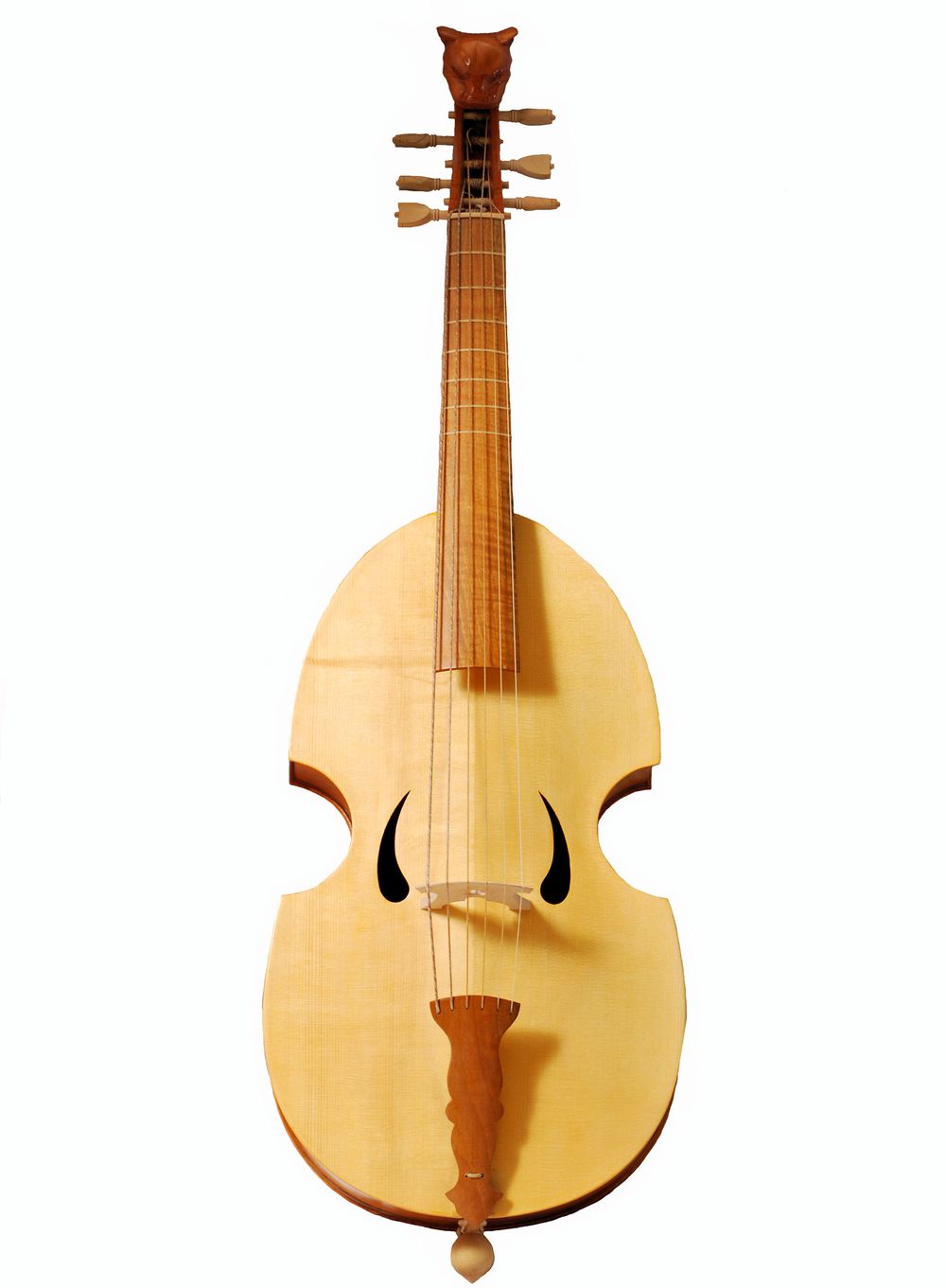
Viola da Gamba
However, modern double basses also exhibit all kinds of deviations and mixed types of these "archetypes." Nowadays, we see 5-string basses with a low H-string or high C-string, while in the premieres of some works by Wolfgang Amadeus Mozart, 3-string double basses were used. We find basses with viola da gamba-like shapes with a rounded "violin back" and basses with violin-like shapes with a straight "viola da gamba back."
Instead of scrolls, lion's or female heads are often used,
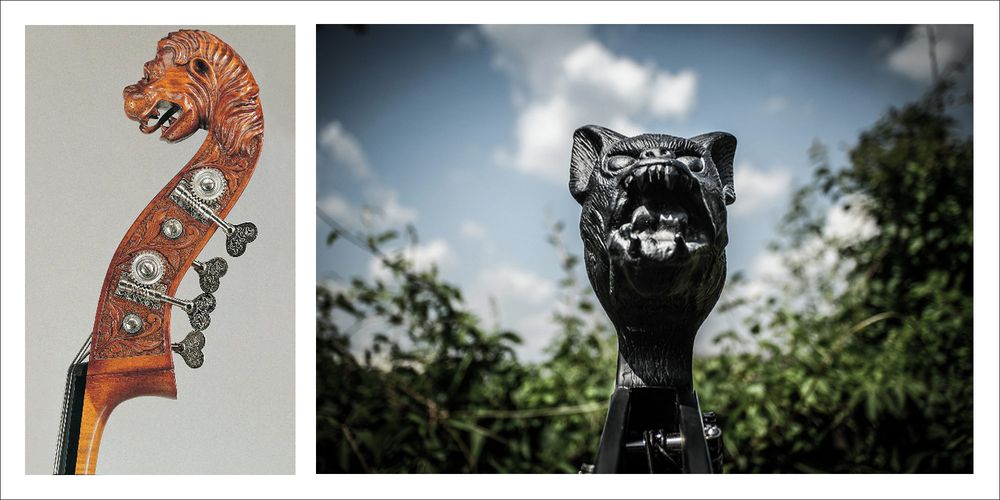
Lion head of the Wilfer brand and the Duke brand
and besides the violin and viola da gamba shapes, the Busseto shape is also becoming increasingly popular.
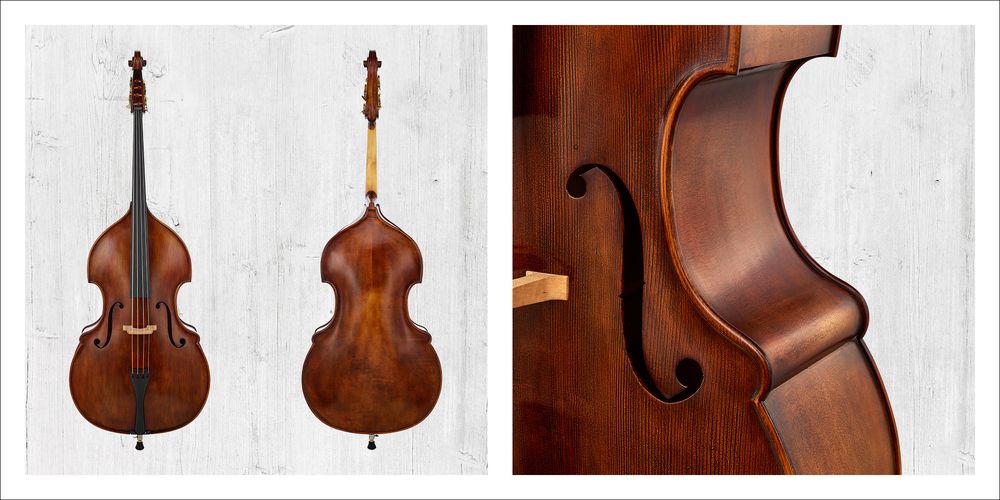
Busseto shape
In today's rockabilly/psychobilly, the F-holes are allowed to deviate from the norm and take the form of revolvers or bats.
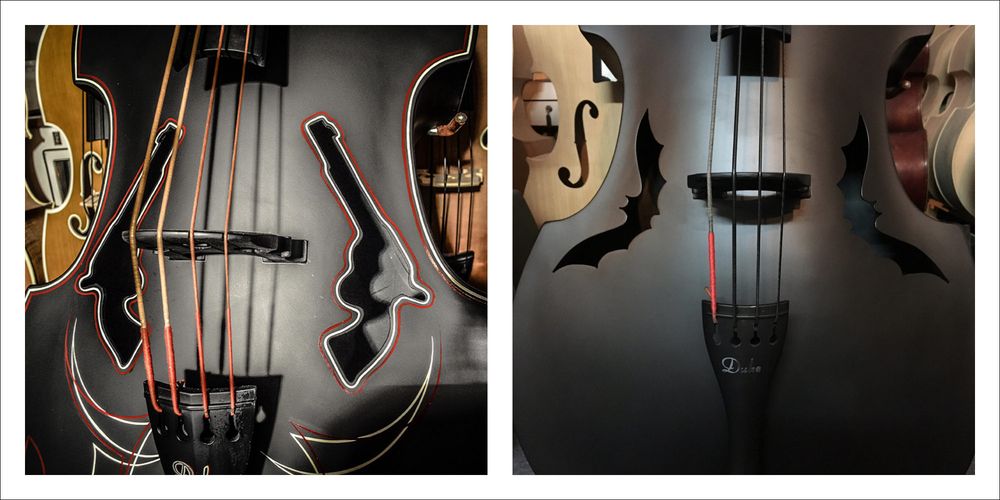
Revolver and bat holes of the Duke brand
In the classical realm, in addition to the bass-typical fourth tuning, various solo tunings or fifth tunings are often used for the interpretation and performance of transcribed compositions (e.g., cello suites by Joh. Seb. Bach).
The double bass has now embraced pretty much all musical styles and genres. It feels at home in the orchestra pit of concert halls and opera houses as well as on the jazz stage. You can hear it in Latin American salsa and merengue bands, as well as in country-rock bands, and it is extremely popular in rock 'n' roll, rockabilly, and psychobilly.

Country

Jazz
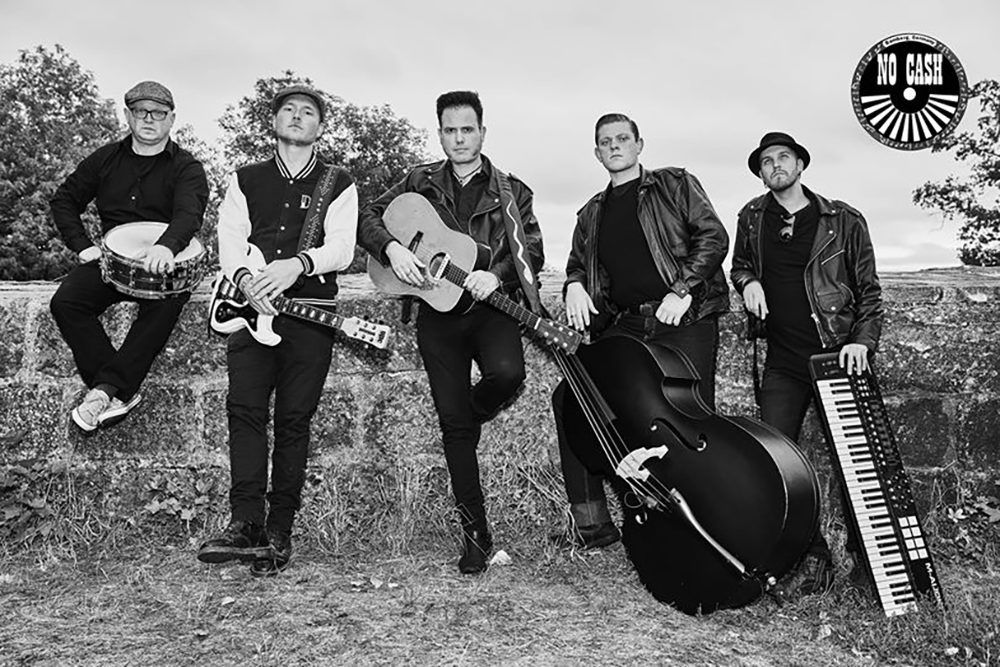
Rockabilly (Band: No Cash)

Irish Folk (Band: Malasaners)
So, it's an instrument that keeps all musical paths open to the player and provides maximum room for personal musical development.






